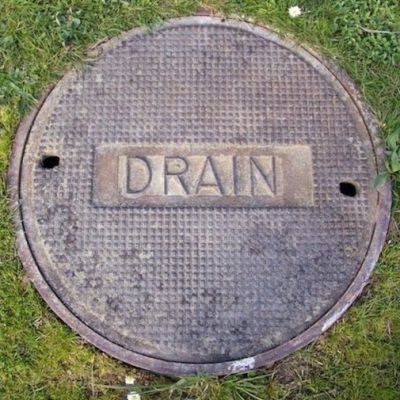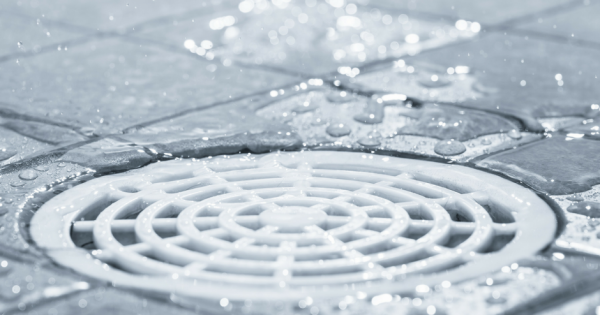The content down the page in relation to What I learned from trying to deal with a clogged drain is rather captivating. Check it out for your own benefit and see what you think of it.

Intro
Taking care of a blocked drain can be a frustrating experience, interrupting daily activities and potentially creating damages to your home. Nonetheless, before reaching out to plumbing experts, there are actions you can take to attend to the problem on your own. In this overview, we'll discover DIY options and preventive measures to take on an obstructed drainpipe properly.
Recognizing the Problem
The primary step in dealing with a blocked drain is recognizing the signs. Slow water drainage, gurgling audios, foul odors originating from drains pipes, or water backing up prevail indications of a blocked drain. Recognizing these signs early can help protect against better issues.
Choosing the Right Plumbing Solution
When choosing a pipes solution, consider factors such as experience, licensing, and client evaluations. Select a reliable plumber with a track record of high quality craftsmanship and clear rates practices.
Price Factors to consider
The price of professional drainpipe cleaning services can vary depending on the intensity of the obstruction and the plumbing professional's rates. Demand quotes from numerous suppliers and inquire about any additional charges to make sure transparency and avoid surprises.
Safety Measures
When trying do it yourself drainpipe cleansing, focus on security. Wear protective gloves and eyeglasses to avoid contact with dangerous chemicals or microorganisms. Never ever blend different drainpipe cleaning items, as this can create dangerous fumes.
Case Studies
Real-life instances illustrate the effectiveness of DIY remedies and the importance of prompt expert intervention in dealing with drainpipe clogs.
Common Sources Of Obstructed Drains
Comprehending the aspects that add to drain clogs is crucial for efficient resolution. Typical wrongdoers consist of hair, soap residue, oil, food debris, and international items like hygienic products or paper towels. Tree roots getting into below ground pipelines can likewise cause significant obstructions.
DIY Solutions
For small clogs, several DIY options can be reliable. Putting boiling thin down the drain can help liquify grease and particles. Sodium bicarbonate and vinegar or a combination of salt and cooking soft drink can work as natural cleansers. Using a plunger or plumbing snake to remove obstructions is one more option.
Tools and Equipment
Having the right tools on hand can make DIY drain cleansing more efficient. A plunger is a functional device for getting rid of blockages in sinks, toilets, and showers. A plumbing serpent or auger can get to deeper blockages, while drain cleansing chemicals can be made use of carefully for stubborn obstructions.
Preventive Measures
To prevent future clogs, adopting preventive measures is crucial. Install drain guards or strainers to catch hair and particles before they enter the pipes. On a regular basis flush drains pipes with warm water to liquify grease accumulation, and avoid getting rid of oil or solid waste away.
When to Call a Professional
While DIY services can resolve minor obstructions, particular indicators show the demand for professional help. Relentless clogs, foul odors regardless of cleansing initiatives, or several drains backing up simultaneously are red flags that call for skilled intervention.
Conclusion
By following the pointers detailed in this overview, you can properly deal with blocked drains and stop future pipes issues. Whether choosing do it yourself services or looking for specialist support, prompt action is crucial to preserving a healthy and balanced pipes system and maintaining the stability of your home.
HOW DO PLUMBERS AND DRAINAGE EXPERTS CLEAR BLOCKED DRAINS?
Most of us have dealt with a backed up drain at some point in our lives! Whether it’s in our home or at our business, when the toilet begins to overflow or the sink doesn’t drain properly, we ultimately seek help from professionals to clear wastewater lines and get things flowing again.
Sure, you can attempt every possible drain hack in the hopes that your line clears but, often, it’ll require more than just pouring something down the drain. Keep in mind too, that pouring acid-based liquid cleaners down your drain can result in even more problems. If unable to clear – and pass through – the clog, it’ll sit in the line and begin to eat away at the pipe. Calling a plumber or professional to clear your drain might be your last resort but it’s the proven result. So, what do they do, and what type of equipment do they use, to get rid of a blocked drain line?
How Do Plumbers And Drainage Experts Clear Blocked Drains?
To better understand exactly where the problem is located, experts will typically start with an assessment and a video sewer inspection. Using non-invasive equipment that enters and exits through the pipe, these cameras offer a look inside the pipe and can spot anything from buildup, to forming clogs, to tree roots to small holes that could be a future problem – in real-time. It can see up to 150 feet of even the hard-to-reach places of the line, so there’s nowhere to hide.
https://www.zoomdrain.com/blog/2023/january/how-do-plumbers-and-drainage-experts-clear-block/

As a fervent reader on , I thought sharing that excerpt was a good thing. Liked our posting? Please share it. Let somebody else check it out. We thank you for your readership.
Click